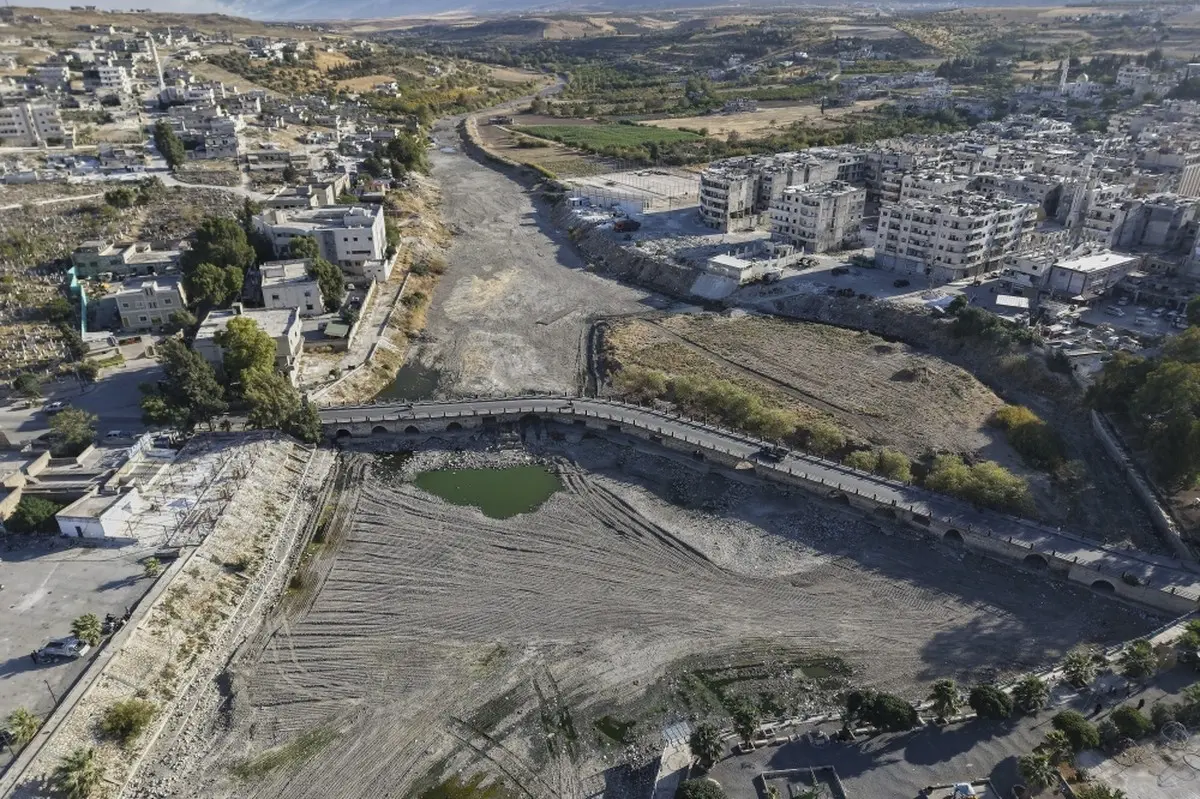04/09/2025
04/09/2025

DAMASCUS, Syria, Sept 4, (AP): The worst drought in decades is gripping much of the Eastern Mediterranean and Middle East, drying out rivers and lakes, shriveling crops and leading to dayslong tap water cutoffs in major cities. The situation is particularly dire in Syria, where experts say rainfall has been declining for decades and where the fledgling government is trying to stitch the country back together following a 14-year civil war that left millions impoverished and reliant on foreign aid.
Small-farmer Mansour Mahmoud al-Khatib said that during the war, he couldn't reach his fields in the Damascus suburb of Sayyida Zeinab some days because militants from the Lebanese Hezbollah militia allied with then-President Bashar Assad would block the roads. That problem vanished when Hezbollah withdrew after Assad fell in a December rebel offensive, but the drought has devastated his farm, drying up the wells that irrigate it. "The land is missing the water,” al-Khatib told The Associated Press recently as he watched workers feed the wheat he did manage to harvest into a threshing machine.
"This season is weak - you could call it half a season. Some years are better and some years are worse, but this year is harsh.” In a good year, his land could produce as much as 800 to 900 kilograms (1,764 to 1,984 pounds) of wheat per dunam, an area equal to 0.1 hectares and 0.25 acres. This year, it yielded about a quarter that much, he said.
He hired only six or seven workers this harvest season instead of last year’s 15. Because the drought followed a prolonged war, farmers who were already financially stretched have had little ability to cope with its effects, said Jalal Al Hamoud, national food security officer for the UNs Food and Agriculture Organization in Syria.
Before the uprising-turned-civil war that began in 2011, Syrian farmers produced an average of 3.5 million to 4.5 million tons of wheat per year, which was enough to meet the country’s domestic needs, according to Saeed Ibrahim, director of agricultural planning and economics in Syria’s Agriculture Ministry. That annual yield dropped to 2.2 million to 2.6 million tons during the war, and in recent years, the government has had to import 60% to 70% of its wheat to feed its roughly 23 million people.
This year's harvest is expected to yield only 1 million tons, forcing the country to spend even more of its strained resources on imports. Mudar Dayoub, a spokesperson for Syria's Ministry of Internal Trade and Consumer Protection, said this year’s wheat crop will only last for two or three months and that the government is "currently relying on signing contracts to import wheat from abroad” and on donations, including from neighboring Iraq.


